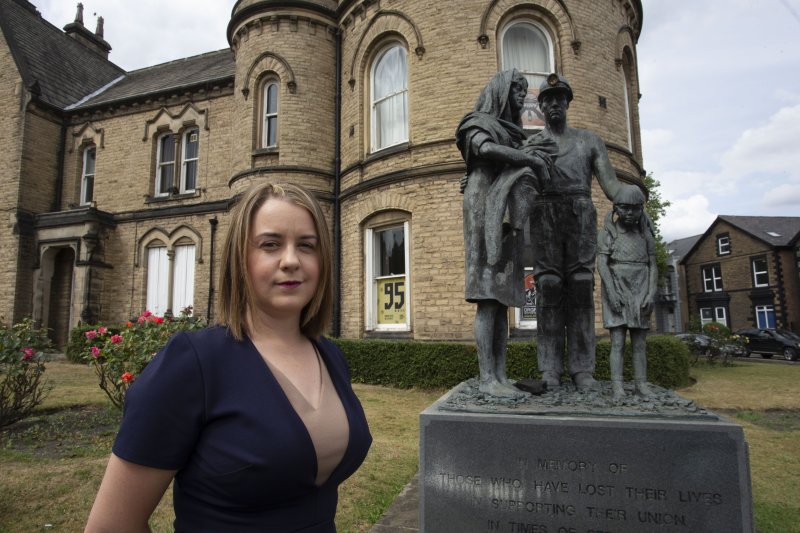CONTROVERSIAL work on a scheme to divert power cables underground - despite campaigners warning wildlife will be decimated as a result - is set to step up in the coming weeks, according to engineers behind the two-year project.
Dumper trucks will be creating the trenches needed to kick-start the National Grid’s so-called ‘visual impact project’ along the Trans Pennine Trail at Dunford Bridge.
Eight pylons along a one-and-a-quarter mile stretch will be taken down in favour of channelling power underground.
After the new underground cables have been connected, the first pylons are due to be taken down permanently in summer 2022, leaders revealed this week.
In recent days, teams have been pruning and cutting back branches on a small number of trees which are scheduled to be removed later in the project and which have been overhanging the trail between Dunford Bridge and Wogden Foot.
Project manager Chris Carr said: “We’ve really enjoyed working closely with the local community over the past few years and have listened to feedback as we’ve developed our proposals.
“Having secured planning consent from Barnsley Council last summer and completed our preparation work, it’s now time for us to get started on this unique project.
“Between now and early 2023 we’ll be working with our appointed contractor, Morgan Sindall, to safely install the underground cables and transform the landscape.
“It’s a significant engineering challenge, but we will be minimising our environmental impacts as well as any disruption to local communities wherever possible.”
Yorkshire Wildlife Trust have continued to blast the plan and supported local claims that local wildlife would be ‘significantly harmed’ by the work - including the loss of willow tits, an endangered bird.
A spokesman added: “Dunford Bridge is located on the periphery of the Peak District National Park and is considered to be an area of outstanding natural beauty.
“This work will undo a success story which has given Barnsley recognition across the country for its willow tit population, one of most endangered bird species in the country.”
Ruling cabinet members on Barnsley Council gave the nod for the sale of 1.2 acres of land and permission to give a two-year land lease - relating to 8.77 acres - late last year for the work to be carried out.
According to documents, the sale of the land accrued just £7,800 for the council.
Campaigner Doug Brown said: “This will result in an unsightly, concrete-covered trough running down the Trans Pennine Trail for about one mile.
“The only conclusion I can draw from this whole sorry episode is that councillors are not interested in biodiversity or the protection of wildlife sites.”
‘Good progress’ is being made on the project, according to the National Grid.
Spokesman Giles Venn told the Chronicle the creation of the cabling trench will also be carried out when the area is at its quietest to increase safety.
“The project team is also making good progress on the temporary diversion of the Trans Pennine Trail, ahead of this opening to the public,” he said.
“Pruning the trees will minimise any travel over the grass verges while taking essential construction materials down to Wogden Foot.
“The truck convoy will be repeated several times in the weeks ahead due to the volume of materials needed at Wogden Foot for the temporary trail diversion.
“The convoy will be led by a pedestrian escort to restrict vehicles to walking pace.
“We have been monitoring trail usage and intend to do this activity when the trail is at its quietest, again with the view to minimising any disruption or inconvenience.
“All this work will take place under the strictest health and safety measures to protect both members of the public and our project team.”






























